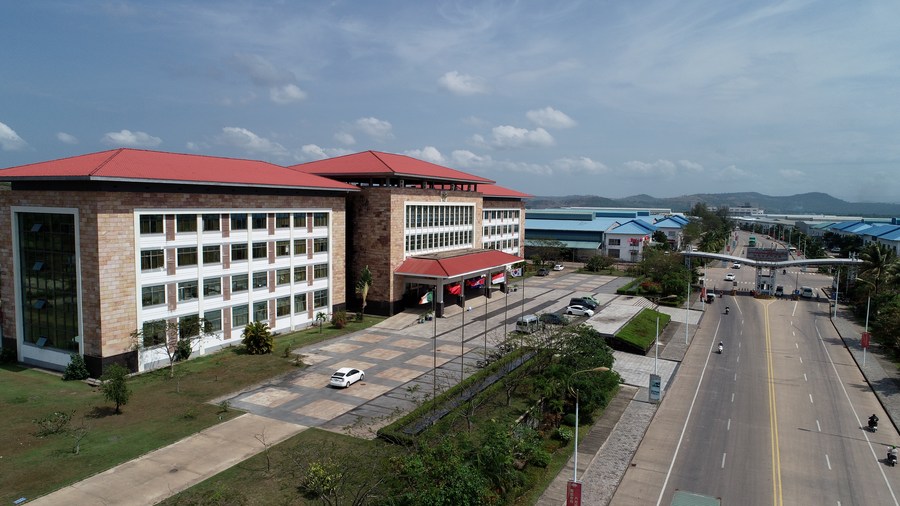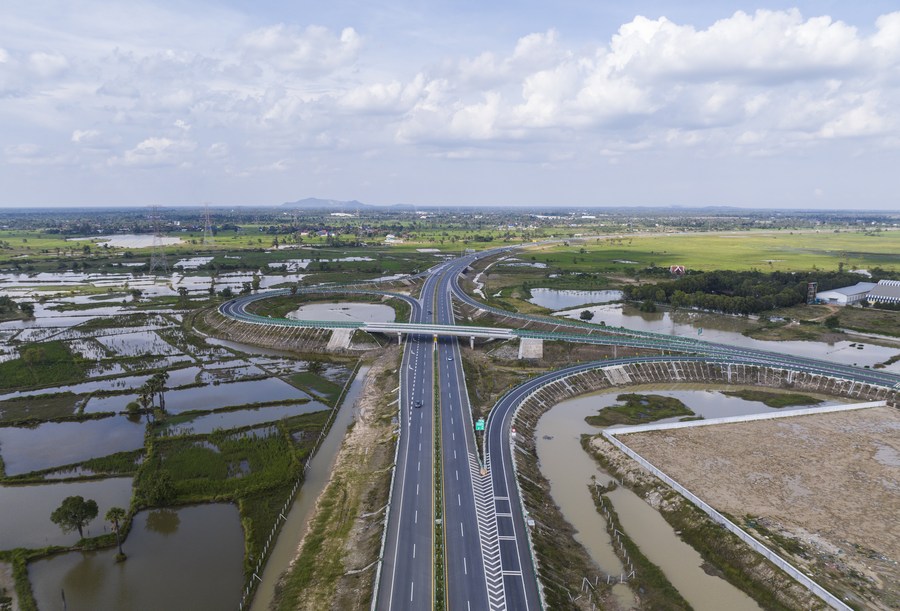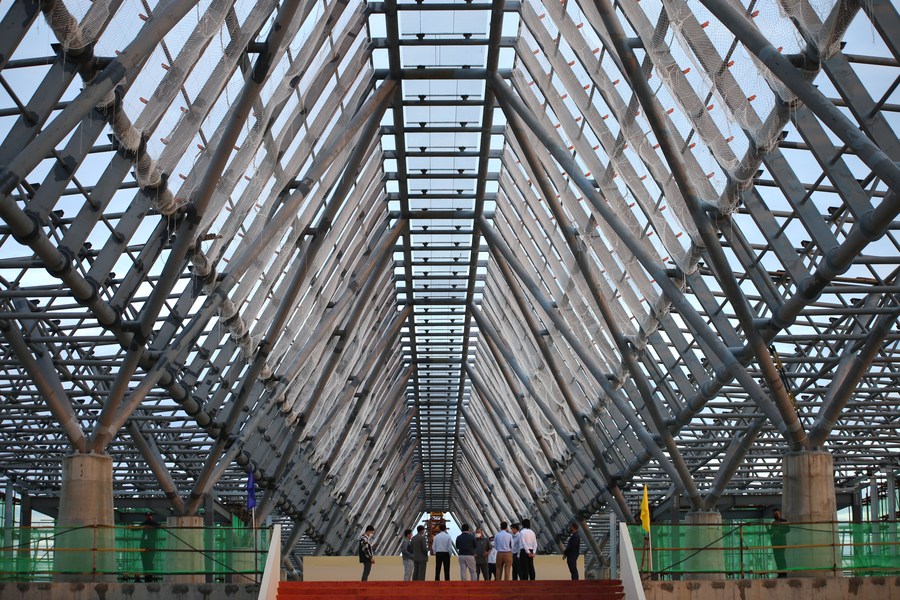
Aerial photo taken on July 19, 2022 shows the entrance of the Sihanoukville Special Economic Zone (SSEZ) in Preah Sihanouk province, Cambodia. (SSEZ/Handout via Xinhua)
Cambodia has built a good synergy with the China-proposed Belt and Road Initiative, which has helped develop many infrastructure projects in Cambodia, the Cambodian government's senior advisor Sok Siphana said.
China-proposed Belt and Road Initiative (BRI) has contributed enormously to Cambodia's economic growth, the Cambodian government's senior advisor Sok Siphana said on Wednesday.
Speaking at the second China-Cambodia Economic and Trade Cooperation Forum via video link, Siphana said Cambodia has built a good synergy with the BRI, which has helped develop many infrastructure projects in the Southeast Asian nation such as the Phnom Penh-Sihanoukville Expressway, the Sihanoukville Coal Power Plant and the Siem Reap Angkor International Airport.
"In terms of strengthening industrial and supply chains between the two countries, the multipurpose Sihanoukville Special Economic Zone will certainly deepen our cooperation in production capacity and help accelerate Cambodia's development of a modern industrial mix," he added.
Siphana, who is also chairman of the board of directors of the Phnom Penh-based independent think tank Asian Vision Institute, said Cambodia and China have forged a very strong bond during both the good and difficult times alike over decades.

This aerial photo taken on Oct. 28, 2022 shows the Phnom Penh-Sihanoukville (PPSHV) Expressway in Kampong Speu Province, Cambodia.(PPSHV Expressway/Handout via Xinhua)
"The last three years of the COVID-19 pandemic was certainly a true testing moment of our relationship," he said. "Moving forward, I believe that our cooperation will continue to flourish and generate more tangible benefits in terms of a more durable peace, stability and prosperity for the two nations and the region at large."
Speaking of the Regional Comprehensive Economic Partnership (RCEP) trade pact and the Cambodia-China Free Trade Agreement (CCFTA), which both entered into force earlier this year, Siphana said the two free trade deals would inject new impetus into Cambodia's economic growth in the long term.
"Cambodia intends to make full use of this CCFTA mechanism in combination with the recent entry into force of the RCEP agreement to promote additional trade for our agricultural products and commodities," he said.

Photo taken on April 3, 2022 shows the steel structure of Chinese-invested Siem Reap Angkor International Airport in Sotr Nikum district, about 40 km from the UNESCO-listed Angkor Archaeological Park and 50 km from Siem Reap provincial town, Cambodia.(Photo by Ly Lay/Xinhua)
"I must say that the business opportunities are unlimited, provided Cambodian companies can take advantage from many Chinese export mechanisms like the China International Import Expo, the China Import and Export Fair, and the ASEAN-China Expo, to mention just a few ones," he added.
Meanwhile, the senior advisor said Cambodia is very supportive of China's latest two signature initiatives, the Global Development Initiative (GDI) and the Global Security Initiative (GSI).
"Cambodia hopes to avail of China's newly allocated resources for global development cooperation, at a time when it needs all the help it can get to tackle these pressing global issues, like COVID-19 response and vaccines, poverty alleviation, food security, climate change and green development," Siphana said, adding that they are confident that the two overtures will have great support from the world like the BRI did.










